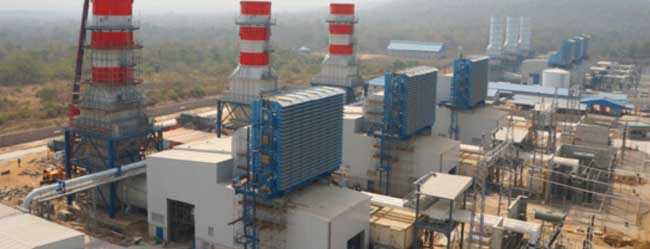The Board Chairman of Cenpower Generation Company Limited, Samuel Nana Brew-Butler has stated that, resources needed are in place and his team is ready to carry on with the signed agreement, which will see the Independent Power Producer switching its primary fuel for its electricity plants, from light crude oil to natural gas.
The new agreement, will see Cenpower, operators of the Kpone Independent Power Plant, which currently provides approximately 10 percent of Ghana’s total electricity generation, receiving and using gas from the Ghana National Petroleum Corporation (GNPC), which is expected to yield savings of about $3.0 billion dollars over the next 19 years.
Speaking during an interview, Mr Brew-Butler, said the resources needed for the agreement to be successful are all in place adding that, they are “ready any moment from now”.
“The most important thing is that, we are ready to run; we’re available. We have our staff there; very competent staff and the plant is also ready. GRIDCo should be ready to dispatch us. Both the pipeline and everything has been constructed, we have tested it months ago, so we are ready.”

Speaking on how the substantial cost savings, estimated at $3.0 billion dollars over the remaining term of the Cenpower PPA was brought about, Mr. Brew- Butler stated that, he has not done the analysis but he can only assume that, because his outfit is not going to buy light crude oil, and because the government will provide the gas which is a cheaper commodity, there will be savings.
“Remember if we are going to buy light crude, we also have an exposure to cash. We have to find working capital to buy the fuel. If we are not going to do that, then of course that’s also another savings to government, and therefore, it has it’s impact on tariff. I’m sure this is all that the economists have put together and they came out with that figure.”
Following the latest agreement, the Finance Ministry in a release called on all other Independent Power Producers to emulate Cenpower and CENIT in advancing solutions to ensure the long-term sustainability of the energy sector.
According to the Ministry, government currently pays over US$500 million a year for unused electricity, which is as a result of legacy power purchase agreements, entered into under the previous administration in an uncoordinated and short-sighted attempt to end the country’s power crisis at the time.
This new agreement will be the second one with an IPP in the past two weeks, which has resulted in significant savings for government. The other arrangement with CENIT Energy Limited is expected to result in total savings in excess of US$200 million to government and all Ghanaians over the remaining life of the PPA with CENIT Energy Limited.
The Finance Ministry earlier, lauded the agreement saying that, the conversion to natural gas will have important environmental benefits, as emissions will be lowered and Ghana’s abundant natural gas resources effectively utilised for the benefit of the Ghanaians and the business community.
The Ministry also noted that, the move to natural gas will alleviate the considerable pressure on Government from its take-or-pay commitments with fuel suppliers, and allow for the substitution of imported fuels with locally available natural gas, thus positively impacting the capital account.




















